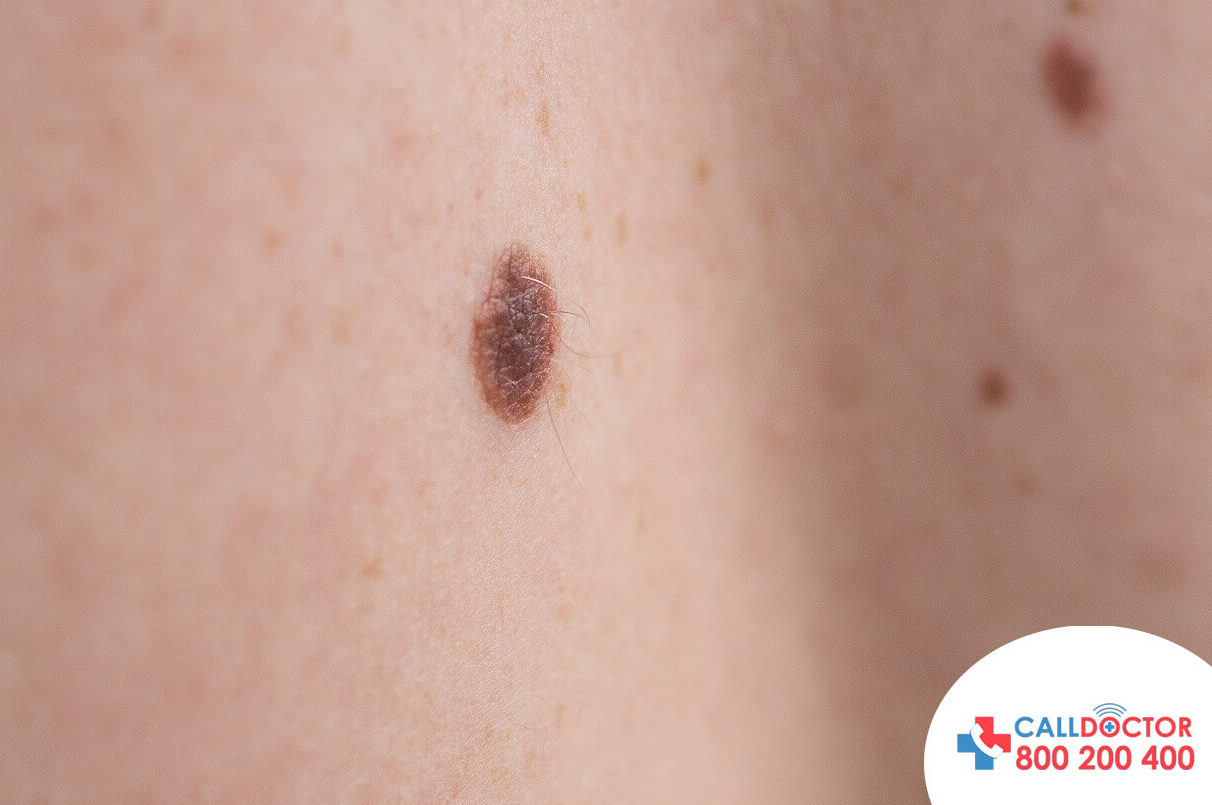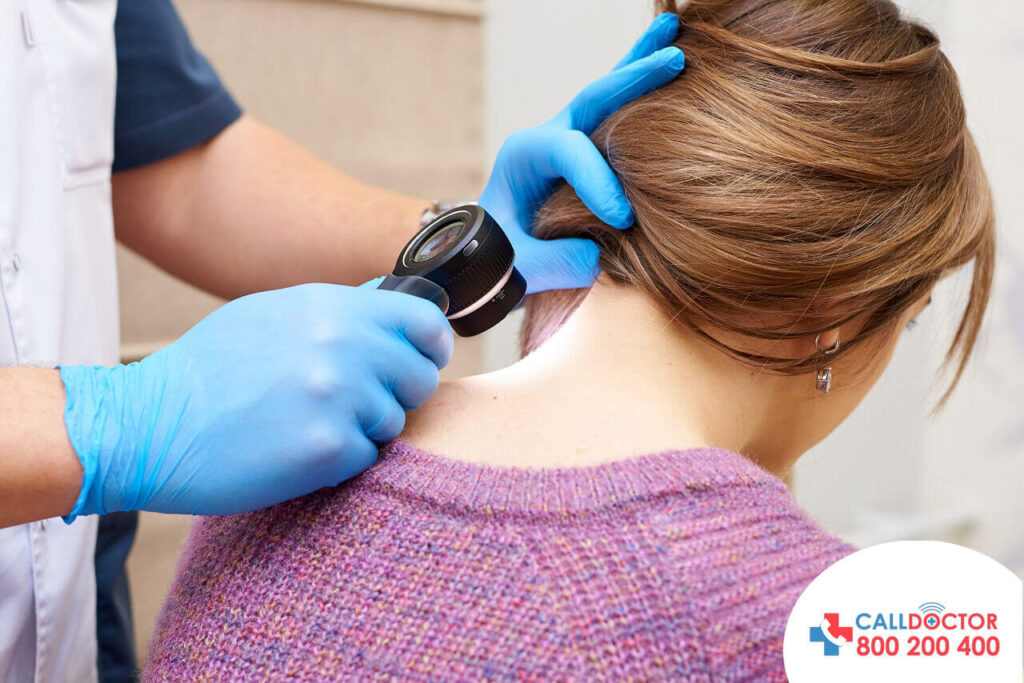Skin is a significant and large part of our body. Healthy skin is a blessing, but we should also beware that skin cancer can happen due to many reasons. However, every type of skin cancer can be treated if found early, so knowing what to look for is essential. Skin cancers occur when skin cells grow and multiply uncontrolled and unorderly.
Usually, new skin cells develop when the previous cells grow old and die. Rapid abnormal cells grow when the skin cell process does not work well as it should. Moreover, the collection of cells may be noncancerous (benign), which do not spread or cause harm, which may extend to nearby tissue or other areas in your body if not caught early and treated. If you have skin-related problems, contact Call Doctor 800 200 400 for further information.
Causes of Skin Cancer
The leading causes of skin cancer are:
- Overexposure to sunlight
- Sunburn
- Blistering
- Ultraviolet (UV) rays
- Skin contact with chemicals, for example, tar and coal
UV rays directly from the sun damage DNA in your skin, causing abnormal cells to form. These abnormal cells rapidly divide disorganized, creating a mass of cancer cells.
Skin cancer occurs primarily on sun-exposed skin areas, including the scalp, face, lips, ears, neck, chest, arms, hands, and legs in women. However, it can form beneath your fingernails, or toenails. It does not matter what color complexion you have. Even a dark complexion can cause skin cancer. Furthermore, people with dark skin complexion can get skin cancer on the palms of the hands and soles of the feet too; it is more likely to occur in areas not generally exposed to the sun.

Symptoms of Skin Cancer
The signs and symptoms of common and less common skin cancers are described below. Moreover, skin cancer often has no symptoms in its preliminary stages, but some symptoms can appear anytime. Many factors can cause developing skin cancer, and some noticeable signs of skin cancer are:
- A prominent change in your skin
- New growth of mole or a change in an existing mole.
- Lumps
- Bumps
- Unusual spots on the skin
- Sores
- Marks on the skin (new or changing or that worry you)
- A new spot on the skin
- Changes in the skin and mole size, shape, or color
- An itchy or painful spot
- Non-healing sore
- Bleed or develop a crust on sore
- Red- or skin-colored on the top of the skin
- A wart-like growth
- Scar-like growth without a well-defined border
Preventions
5 essential steps to prevent skin cancer:
- Avoid the sun rays between 10 am to 4 pm.
- Use sunscreen — at least sun protection factor (SPF) 30
- If you are swimming or sweating, then reapply the sunscreen after two hours or more frequently
- Wear sun-protective clothing with an ultraviolet protection factor (UPF) of 50+, which blocks 98% of the sun’s rays.
- Hats with wide brims
- Wear protective outfits that cover your arms and legs are helpful to protect your skin from harmful UV damage.
- Avoid tanning beds. Tanning beds operate with UV lights, damaging your skin and potentially leading to cancer.
- Self-check your skin. If you notice differences, talk with your skin specialist.

Treatments
There are various treatment options available for treatment of skin cancer depending upon the type of skin cancer and extent of cancer. Your dermatologist with team of oncologist and oncologist surgeon will decide about it after assessment. Diverse options possible are:
- Nonsurgical
- Surgery
- Radiation therapy
- Chemotherapy for skin cancer




